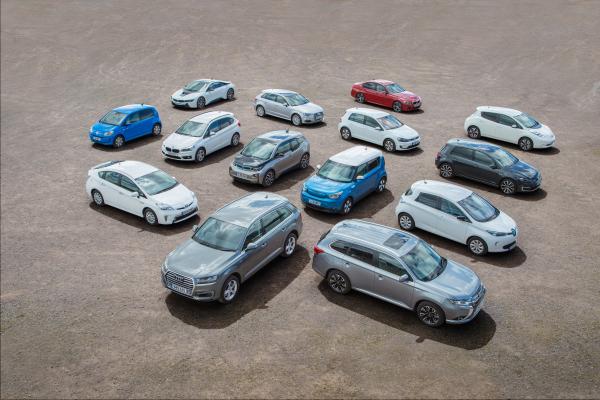2017 proved to a record year for electric vehicles in the UK, attaining the highest ever annual market share in a year that saw overall new car registrations decline for the first time in six years.
Figures published today by the Society of Motor Manufacturers and Traders (SMMT) have shown that electric, hydrogen and hybrid vehicles registrations over 2017 came in at just under 120,000, marking a ~35% increase from the previous year and a new annual record.
The data also showed that the number of registered cars eligible for the plug-in car grant also topped 45,000 in 2017, almost 27% higher than the previous year. In addition, 2017 along accounted for 35% of all of the 127,509 registrations under the government incentive scheme since January 2011.
The SMMT figures do not include commercial vehicles and with fleet electrification expected to account for a significant proportion of the UK’s pure and hybrid electric vehicles, low emission vehicle buyers site Next Green Car estimates the total UK light-duty electric fleet to be more than 137,000 electric vehicles strong.
With demand for petrol vehicles rising by a modest 2.7%, and diesel registrations falling by a considerable 17.1% following a year of negative rhetoric towards the fuel type, demand for alternatively fuelled vehicles in the UK enjoyed the biggest boost, reaching a new annual market share of 4.7%.
The UK is Europe’s biggest market for pure electric and hybrid vehicles, in the context of being the second largest in Europe for all new car registrations behind Germany.
Charging infrastructure keeping pace with EV boom
Despite the swelling of demand for alternative vehicles, separate data from Next Green Car showed 6,490 new UK charging points were added between February 2016 and this month, placing the total number of publically accessible chargers at almost 15,000.
A recent survey reinforced the widely accepted view that the roll out of EVs has been hampered by a perceived lack of charging infrastructure across the UK, however published data fails to include chargers sold to homeowners when purchasing electric vehicles.
While the public charger figures seem low Tom Callow, strategy director of Chargemaster, the UK’s largest public and private electric vehicle supplier, believes the presence of domestic and private chargers puts the number much higher.
At least 85,000 home chargers are thought to have been deployed in the UK on top of the 15,000 strong public network, meaning rollout of charging infrastructure is keeping pace with the rising number of EVs hitting UK roads.
“There are at least as many dedicated EV charging points in the UK as there are EVs in the UK at this moment in time; the charging market is keeping up with the car market,” Callow said.
“The fact that there are already as many charge points out there if you count workplace, home and public charge points as there are EVs, and the fact that 80% plus of charging happens at home anyway, shows us that actually EVs are working for the people that have them.”






